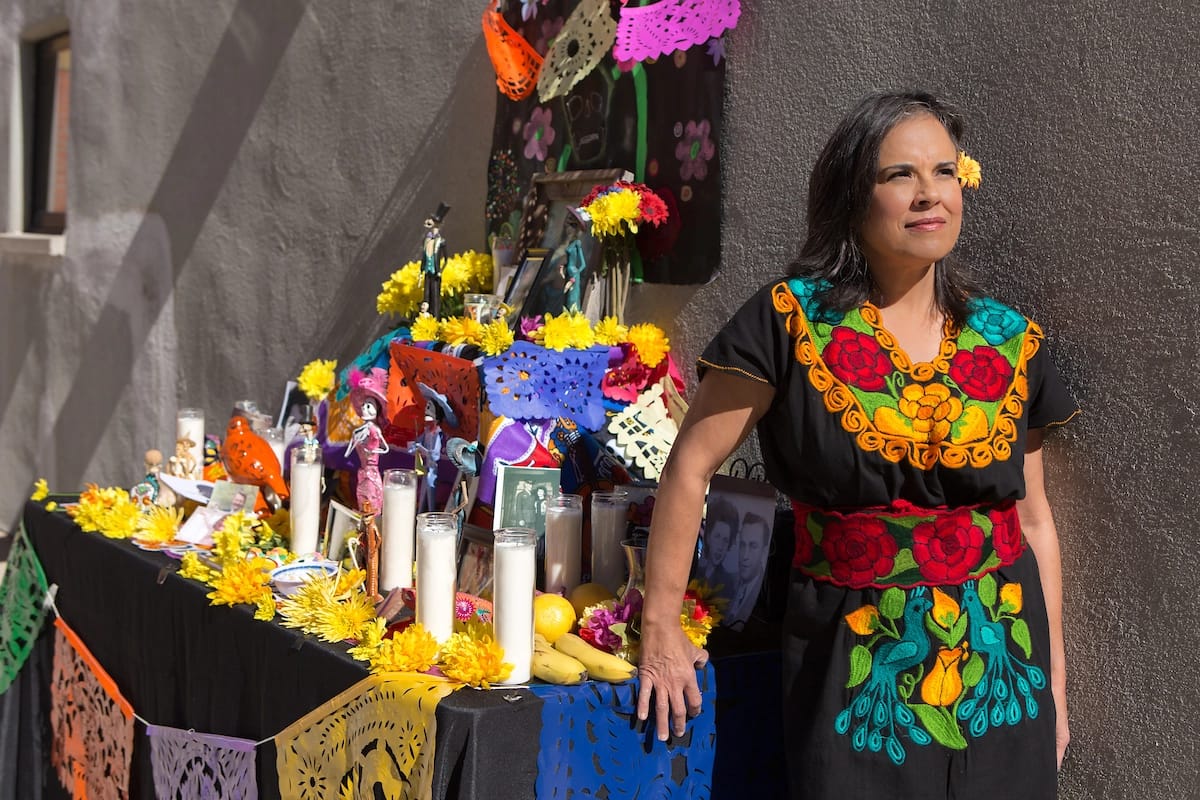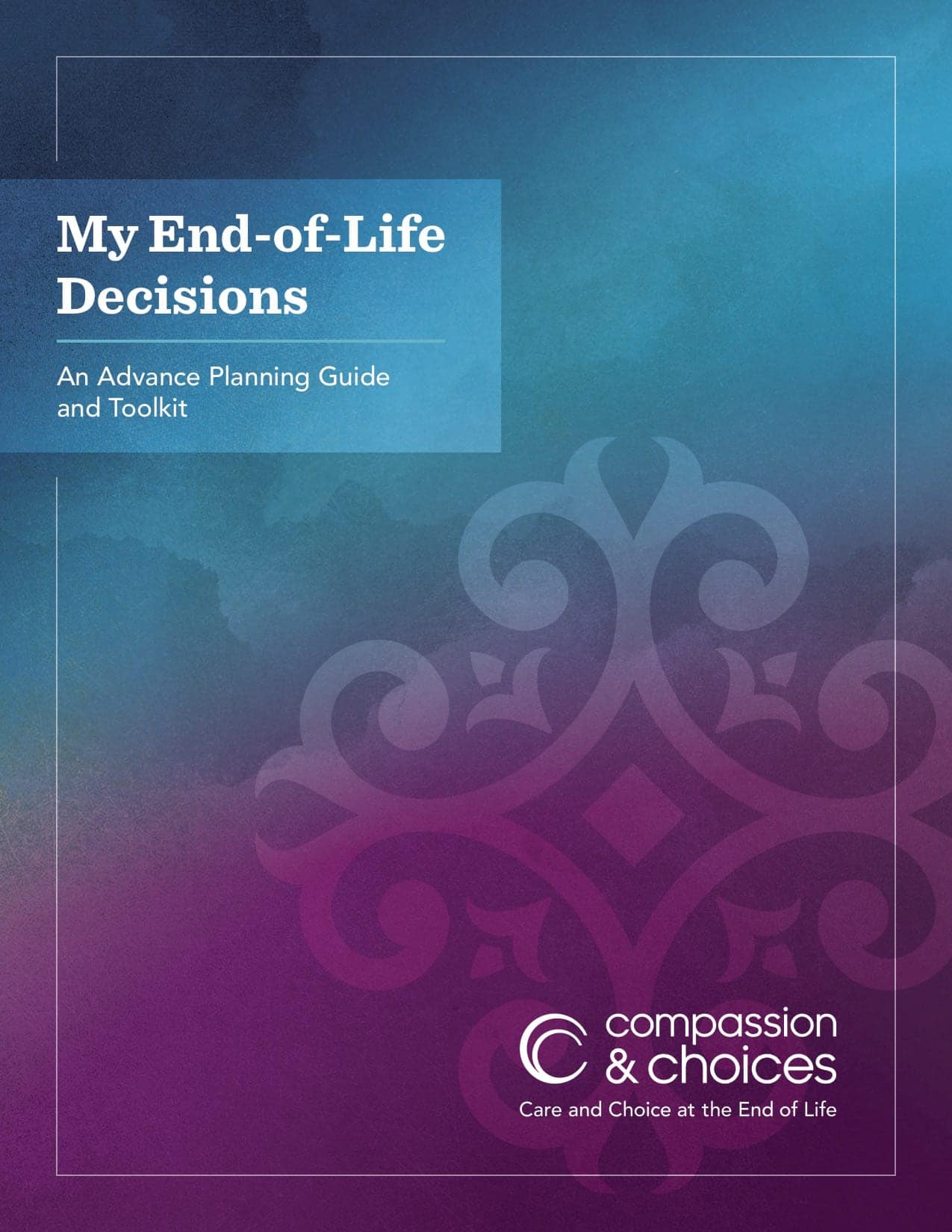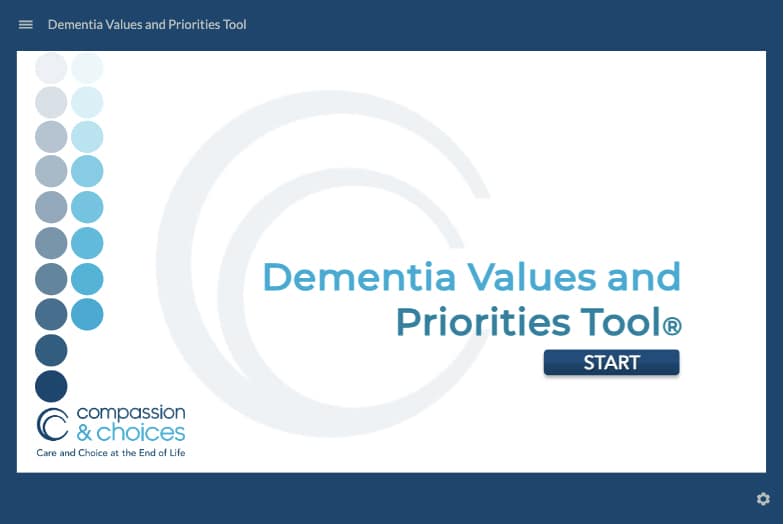
Compassion & Choices está comprometido en apoderar a las personas para que obtengan la atención y cuidados que desean durante una enfermedad grave o al final de su vida. Una forma de lograrlo es ayudando a las personas a planificarlo y convertirse en defensores de sí mismos y de sus seres queridos.
Compassion & Choices’ My End-of-Life Decisions: An Advance Planning Guide and Toolkit will help you work through your end-of-life priorities and empower you to have valuable discussions with your healthcare providers. It includes tear-out sheets for advance care planning. The 40-page toolkit is available for download or a free hard copy can be ordered.


This interactive tool will document your wishes regarding the care you want and create an addendum that can be added to your existing advance directive.
The Values Worksheet includes a series of questions that help you think through your priorities for care at life’s end.
An Assisted-Living Facility Rider helps ensure that an assisted-living facility will respect a resident’s wishes for end-of-life care.
A Hospital Visitation Form helps ensure that people you most want to be with you are admitted on a priority basis, whether or not they are family members.
A Sectarian Healthcare Directive helps ensure that a patient’s instructions will be respected in a situation where institutional policy conflicts with those instructions and that, depending on state law, the provider will assist with the transfer.
My Particular Wishes is meant to inform physicians, nurses or other care providers of your consent to or refusal of certain specific therapies. It also guides a family member or any other person you name in making decisions for you, if you cannot articulate these decisions yourself.

Compassion & Choices is proud to partner with SAGE to create a comprehensive end of life planning guide for LGBTQ+ people, by LGBTQ+ people. This tool walks through decisions around health care proxies, hospice care, how we honor life, and so much more. An excellent resource for individuals, chosen family members and professionals working in deathcare.
Studies show the single most powerful thing a person can do to improve the chance for gentle dying, is simply an courageously, talk about it with your clinicians. Our toolkit provides you with a step-by-step guide to finding clinicians who will support you in advance and during a serious diagnosis. This includes:
State-specific booklets that provide step-by-step instructions for how to use the law, how to find a physician and what to consider when talking with your physician. Also see the Medical aid-in-dying tracking sheet.

Finish Strong: Putting Your Priorities First at Life’s End, by President Emerita / Senior Adviser of Compassion & Choices Barbara Coombs Lee, is the guide to achieving the positive end-of-life experience you want and deserve. Finish Strong is for those who know they should prepare for the end of life, but are unsure how to think and talk about it. The book aims to help you live true to your values and priorities as vigor wanes, and how to make sure your wishes are honored. It describes concrete action to take in the here and now, to help live your best life to the end.
Mail contributions directly to:
Compassion & Choices Gift Processing Center
PO Box 485
Etna, NH 03750